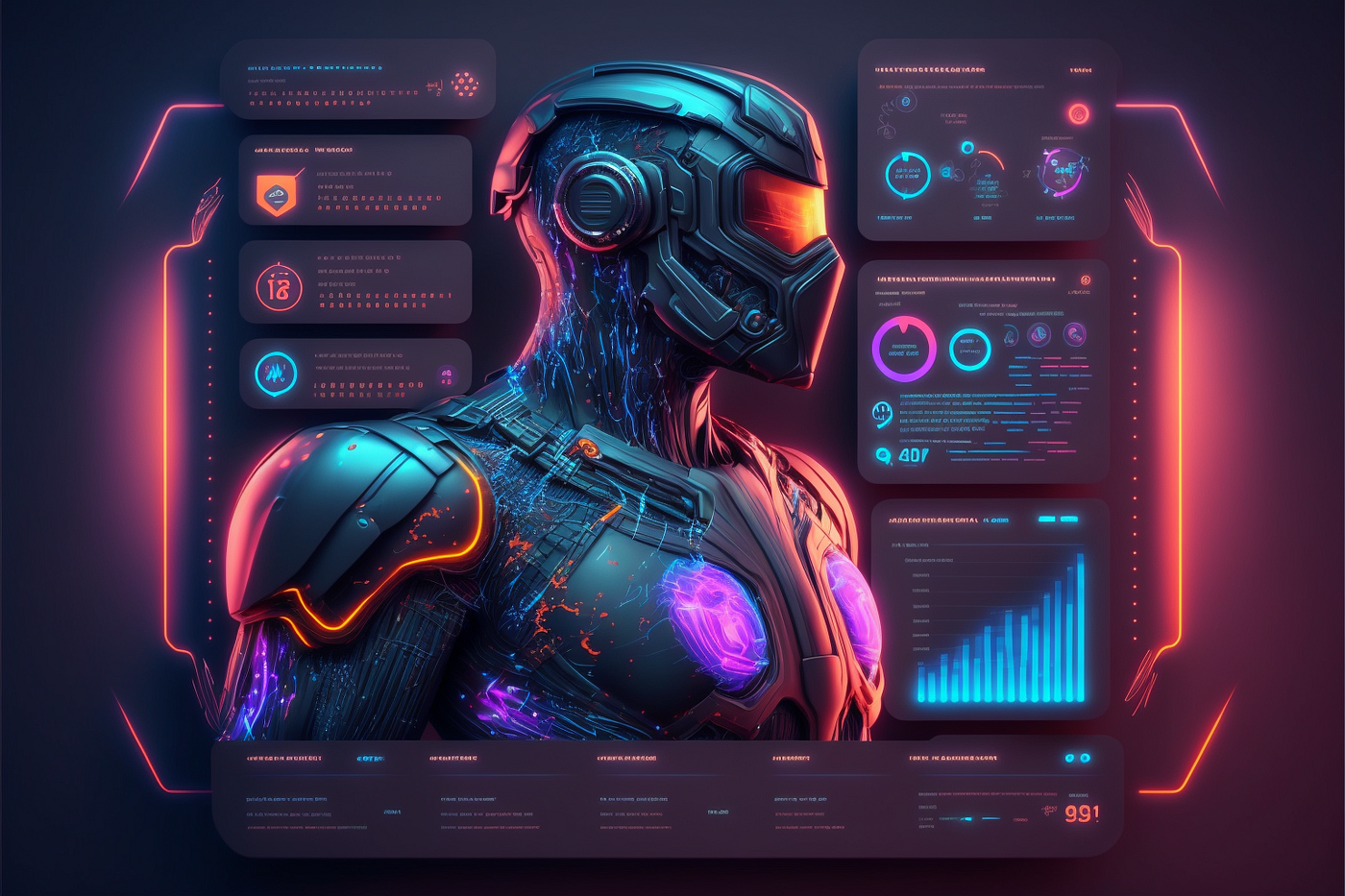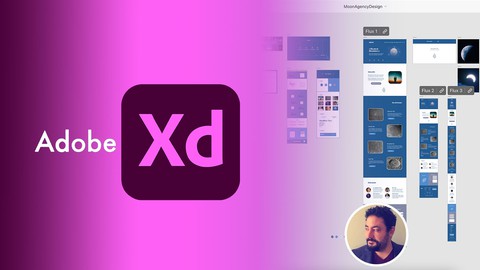Description
Introduction of UI/UX Design with AI
This course explores the intersection of UI/UX design and artificial intelligence (AI), focusing on how AI technologies can be integrated to create smarter, more intuitive user interfaces. Participants will learn how AI is transforming user experiences through personalization, predictive design, and automated interactions. The course covers practical approaches to using AI tools in UI/UX design, including AI-driven user research, chatbots, voice interfaces, and adaptive layouts. By the end of the course, participants will be equipped with the knowledge to design AI-enhanced interfaces that deliver more engaging and efficient user experiences.
Prerequisites:
- Basic understanding of UI/UX design principles
- Familiarity with design tools such as Figma, Adobe XD, or Sketch
- No prior experience in AI is required, though a basic understanding of AI concepts is helpful
Table of Content:
1: Introduction to AI in UI/UX Design
1.1 Overview of Artificial Intelligence and Its Role in Design
1.2 How AI is Transforming User Interface (UI) and User Experience (UX) Design
1.3 Key AI Technologies Impacting UI/UX (Machine Learning, Natural Language Processing, etc.)
1.4 Examples of AI-Enhanced Interfaces in Real-World Applications
2: Personalization and Predictive Design with AI
2.1 Understanding Personalization in UI/UX: Tailoring Experiences to Individual Users
2.2 How AI Uses Data to Create Personalized User Experiences
2.3 Predictive Design: Leveraging AI to Anticipate User Needs and Behaviors
2.4 Practical Exercise: Designing a Personalized User Interface Using AI-Driven Data
3: AI-Driven User Research and Data Collection
3.1 Conducting User Research with AI Tools: Automating Data Collection and Analysis
3.2 How AI Improves User Testing and Feedback Analysis
3.3 Using AI to Uncover Deep Insights into User Behavior and Preferences
3.4 Practical Exercise: Using AI-Powered Tools for User Research
4: Chatbots and Conversational Interfaces
4.1 The Role of AI in Building Intelligent Chatbots and Conversational UIs
4.2 Designing Seamless Interactions with Chatbot Interfaces
4.3 Best Practices for Crafting Conversational Flows Using Natural Language Processing (NLP)
4.4 Practical Exercise: Designing a Chatbot Interface for a Specific Use Case
5: Voice Interfaces and AI-Powered Interaction Design
5.1 The Rise of Voice-Activated UIs and How AI Powers Them (e.g., Siri, Alexa, Google Assistant)
5.2 Designing Intuitive Voice Interactions: Principles of Voice UX
5.3 Challenges in Designing Voice Interfaces: Context, Feedback, and Error Handling
5.4 Practical Exercise: Designing a Voice UI for a Digital Assistant
6: AI-Powered Design Tools
6.1 Introduction to AI-Driven Design Tools and Platforms (e.g., Adobe Sensei, Uizard, etc.)
6.2 Automating Design Tasks with AI (Layout Generation, Content Suggestions, etc.)
6.3 AI in Prototyping and User Testing: How to Rapidly Iterate Designs Using AI Feedback
6.4 Practical Exercise: Using AI Design Tools to Enhance a UI Prototype
7: Adaptive and Dynamic Interfaces with AI
7.1 Designing Adaptive Interfaces that Respond to Real-Time User Data
7.2 AI-Powered Responsive Design: Creating Layouts that Adapt to Devices and User Contexts
7.3 Implementing Dynamic Content that Adjusts Based on User Behavior
7.4 Practical Exercise: Designing an Adaptive Interface that Adjusts to User Input
8: AI-Enhanced Accessibility in UI/UX Design
8.1 How AI Can Improve Accessibility in Digital Interfaces (e.g., Automatic Alt-Text, Voice Navigation)
8.2 Designing Inclusive Experiences with AI: Catering to Diverse Users
8.3 AI-Powered Tools for Testing and Enhancing Accessibility(Ref: UX Writing: Crafting Clear and Effective Microcopy)
8.4 Practical Exercise: Designing an Accessible Interface Using AI-Driven Accessibility Features
9: Ethics and Bias in AI-Driven Design
9.1 Ethical Considerations When Integrating AI into UI/UX Design
9.2 Recognizing and Mitigating Bias in AI Algorithms and Design Decisions
9.3 Designing for Transparency: Ensuring Users Understand How AI-Driven Systems Work
9.4 Practical Exercise: Auditing an AI-Powered Interface for Potential Biases
10: Case Studies: AI in UI/UX Design
10.1 In-Depth Analysis of Successful AI-Driven UI/UX Designs in Various Industries
10.2 How Companies Like Netflix, Spotify, and Amazon Use AI to Enhance User Experiences
10.3 Lessons Learned from AI-Powered Design Failures and How to Avoid Common Pitfalls
11: Designing for Future AI Technologies
11.1 The Future of AI in UI/UX Design: Emerging Trends and Technologies (e.g., AR, VR, Generative AI)
11.2 Preparing for the Next Wave of AI-Driven Interactions: Autonomous Interfaces and Predictive AI
11.3 Practical Exercise: Conceptualizing an AI-Enhanced Interface for a Futuristic Application
12: Final Project: Designing an AI-Enhanced User Interface
12.1 Identify a Real-World Problem Where AI Can Enhance the User Experience
12.2 Conduct User Research Using AI-Driven Tools
12.3 Design a Personalized, Adaptive, or Conversational Interface Using AI Principles
12.4 Present and Critique the Final Project with Peers and Instructors
Conclusion:
AI is revolutionizing the field of UI/UX design, allowing designers to create smarter, more personalized, and highly efficient interfaces. By leveraging AI tools for automating repetitive tasks, analyzing user behavior, and optimizing designs, designers can significantly enhance the user experience. This training will equip participants with the necessary skills and tools to integrate AI into their design processes, ensuring they stay ahead in the rapidly evolving design landscape.







Reviews
There are no reviews yet.